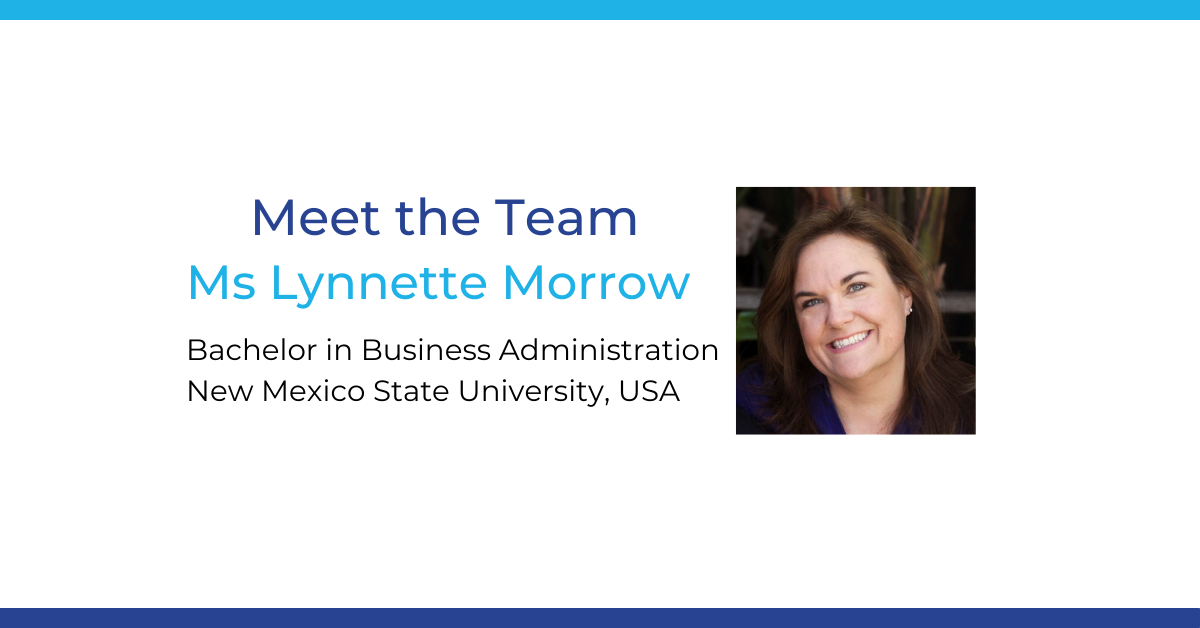
The life of an academic editor is often a thankless task, working in the background with little acknowledgement of the hours spent at the keyboard. With that in mind, and to give you insight into who is behind the scenes actually editing your papers, we’re pleased to launch “Meet the Team”, where our hard-working, gifted editing team share more about their backgrounds as well as thoughts on editing and academic writing. In this interview our senior editor, Ms Lynnette Morrow, tells us about her experience, views and suggestions for authors.
How long have you worked in the academic editing industry? Why are you interested in this line of work?
I’m fairly new to academic editing, having started just over two years ago. I appreciate the precision of academic writing, and I enjoy reading recent research. I find it particularly satisfying to untangle a difficult sentence and revise it to clearly communicate the author’s meaning. Occasionally, I’m so happy with a particular revision that I have to take a moment to admire the transformation.
When editing, does it help to have specific knowledge of the field, or is a good knowledge of English sufficient?
It certainly helps to have specific knowledge of the field, and that knowledge is particularly important for certain fields. However, a good knowledge of English can be sufficient as long as the editor is aware of their limitations and adjusts their process to compensate. Of course, there is a limit to how far beyond one’s knowledge one can reasonably edit.
Having edited so many papers for different authors in Asia, what do you feel are their strengths and weaknesses in academic writing?
I am generally impressed with the quality of writing I see. Interestingly, some of the authors seem to have a good grasp of concepts that many native English speakers struggle with, such as who vs. whom or the correct use of the semicolon. Weaknesses include the misuse of articles, which is always an issue to some degree, and the use of smothered verbs—a noun phrase instead of single verb. For example, “perform an assessment“ instead of “assess” or “make a decision to include” instead of “included.”
What are the most common grammatical errors that you come across when editing journal papers?
Verb errors are extremely common, whether it’s subject-verb agreement or a tense issue. The correct use of prepositions is another common error, and I suspect this may be because US and UK English use prepositions differently. If someone is regularly exposed to both forms of English, I can only imagine how confusing it is.
You must have to do a lot of reading and editing every day. What are your tips for staying focused?
I work at home, so staying focused can be a challenge. I have found that I work best in cycles. Most days, alternating between 90 minutes of work and 30-minute breaks is ideal. Some days, 90 minutes is too much. Instead of trying to force myself to focus, I accept that it’s one of those days and switch to 50-minute work periods and 20-minute breaks. During the breaks, I leave the computer and my office completely. This gives my mind and my eyes a break, and moving around after sitting for an extended period is good for my health and my focus.
We will be speaking with another member of our editing team in the next issue. Do keep an eye out for it!
Meanwhile if you are looking for a professional editing service to improve your chances of publication success, check out our academic editing service which is trusted by many leading academics!
Check out AsiaEdit’s professional research grant proposal editing service.
Read more about our training services covering all aspects of academic writing tailored for local institutions.
More resources on research grant proposal writing: On-demand Webinars
Preparing an effective research proposal – Your guide to successful funding application
Preparing an effective research proposal – Your guide to successful funding application (Part 2)
你的日程安排,我们最关切 AsiaEdit采用个性化的润色方式。
香港湾仔
轩尼诗道99号2101室
9:00am – 6:00pm
(+852) 2590 6588
